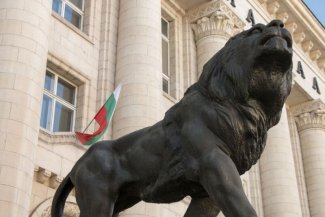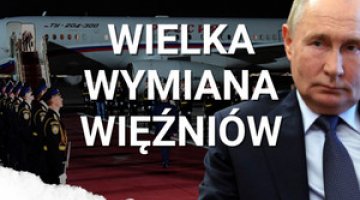Tension in Bulgarian-Russian relations

A number of events have taken place in Bulgaria over the past two weeks resulting in a sudden deterioration of Bulgarian-Russian relations. On 3 September, the Bulgarian Ministry of Foreign Affairs criticised an exhibition entitled the ‘Liberation of Bulgaria’ held at the Russian Culture and Information Centre in Sofia, which was the Bulgarian-language version of the exhibition ‘75 Years since the Liberation of Eastern Europe from Nazism’. Its official inauguration was planned for 9 September, on the anniversary of the coup backed by the USSR which enabled Bulgarian communists to take power in 1944. The Bulgarian Ministry of Foreign Affairs published a statement declaring that it does not question the Soviet contribution to the defeat of Nazism in Europe, but the Red Army brought “half a century of repressions” to Central and Eastern Europe. In Sofia’s opinion, “using the term ‘liberation’ when referring to the September 1944 events puts only some Bulgarian political forces in a privileged position and is an act of interference with the domestic political debate in Bulgaria.”
In turn, on 9 September, the Bulgarian prosecution authorities and counterintelligence – the State Agency for National Security (DANS) – arrested Nikolai Malinov, head of the National ‘Russophile’ Movement on charges of spying for Russia. He was released on bail the next day, but the court prohibited him from leaving Bulgaria. A few other people were detained besides Malinov, but they were released after being interrogated. Malinov is a businessman and a former deputy representing the opposition Bulgarian Socialist Party (BSP). The prosecution authorities and a section of the media believe that he has close links with pro-Russian oligarchic circles in Bulgaria. The prosecution authorities have announced that the investigation conducted jointly with DANS concerns financial links between Bulgarian business circles and the Russian oligarch Konstantin Malofeev. Malofeev is on the EU sanctions list due to financing separatists in Donbas.
According to the Bulgarian prosecution authorities, Malinov’s moves were aimed at making the country’s policy clearly pro-Russian, for example, through founding pro-Russian media and a new political party with the support of Russian and Bulgarian capital. To achieve this, Malinov reportedly collaborated with the Russian Institute for Strategic Studies (RISI) linked to the Kremlin and the Double-Headed Eagle Society. Among authorities of those entities are Malofeev and the former Russian intelligence general Leonid Reshetnikov (he served as the head of RISI until 2016, and since 2017 as the chairman of the supervisory board of the neo-imperial Russian news channel Tsargrad TV financed by Malofeev). Bulgaria’s prosecutor general has also announced that, on the grounds of a DANS decision, Reshetnikov and Malofeev were declared personae non gratae and were banned from entering Bulgaria for ten years.
Doubts concerning how appropriate the Bulgarian government’s moves are have been expressed by the head of the Bulgarian Socialist Party (BSP), Korneliya Ninova, and the Bulgarian president, Rumen Radev, who is supported by the post-communist opposition. They demanded that the prosecution authorities should present tangible evidence to prove the accusations. The leader of the BSP also suggested that this move might be a political provocation of the governing centre-right GERB party and Prime Minister Boyko Borisov.
On 11 September, Mr Borisov announced that he had had no influence on the actions taken by the secret services. He expressed his appreciation of the work of the counter-intelligence which, along with other government institutions and ‘partner services’ effectively thwarted the Russian oligarch’s attempts at affecting the Bulgarian media sector. He also emphasised that he supported maintaining good relations with both Russia and the USA.
The Bulgarian government’s moves were backed by the embassies of the United States and the United Kingdom, which announced statements regarding this issue. In turn, the Russian Ministry of Foreign Affairs expressed concern about Malinov’s arrest, stating that it expected the Bulgarian government to refrain from taking steps that might “challenge the present positive dynamics of bilateral relations.” In turn, Konstantin Kosachev, the chairman of the Foreign Affairs Committee of the Federation Council, and Reshetnikov claimed that the situation was the effect of a ‘US campaign’.
Commentary
- The tension in September is something new in Bulgarian-Russian relations. Regardless of EU and NATO membership, Bulgarian governments of any political affiliation usually maintained good relations with Russia. Strong political and business links, focused above all in the fuel and energy sector, exist between the Bulgarian and Russian elites. The Bulgarian public has also inalterably manifested a positive sentiment towards Russia. The temporary causes of the current tension are generated by the political struggle between the governing party GERB and the largest opposition party, the BSP. The statement from the Bulgarian Ministry of Foreign Affairs and Malinov’s detention are interlinked and targeted against the post-communist BSP. It is this grouping, being the heir of the Bulgarian communist tradition, that according to the ministry’s statement was favoured by branding the September 1944 coup as liberation. In turn, the ‘Russophile’ head was arrested on precisely the 75th anniversary of these events. The blow against the BSP is an element of the political struggle linked to the upcoming local election (27 October) in which the race for the mayor of Sofia will be the most important one. It is likely that the centre right government of Bulgaria believes that the votes of the electorate of the smaller right-wing groupings, who dislike the communist legacy, will play the decisive role on the victory in Sofia.
- Malinov and his circle, who are linked to the BSP, are not the key figures as regards Russian influence in Bulgaria. However, the nervous reactions from Russia may prove that a blow has been dealt against an organisation which is one of the platforms used by Russia, including its secret services, to influence the domestic situation in Bulgaria. Malinov’s moves and the plans revealed by the Bulgarian government fit in with the Russian style of action as part of which it creates instruments of influence abroad, using local Russophile circles and capitalising on business and media projects to achieve this. These moves are financed by Russian oligarchs loyal to the Kremlin.
- It cannot be ruled out that, the Bulgarian government’s intention was to make this move as a friendly gesture towards the USA. This year the US administration began to clearly apply pressure on Bulgaria to adopt a foreign policy that would be less open towards Russia. The Bulgarian government, regardless of NATO membership and its support for the sanctions imposed by the EU on Russia, have continued co-operation with Moscow, especially in the energy sector. Its effects include efforts to build a Bulgarian section of the European branch of the TurkStream gas pipeline transporting Russian gas from Turkey to Central and South-Eastern Europe. The USA disapproves of this project (and of Russia’s continuing influence in other branches of the Bulgarian economy) and has pressed Bulgaria to correct its policy in this area. As a consequence, Sofia has made efforts to diversify the sources of natural gas supplies (buying American LNG and launching construction of a new gas intersystem connector with Greece).




